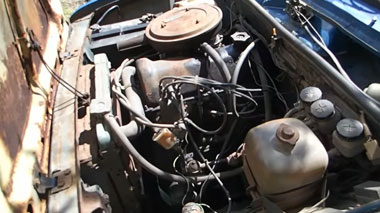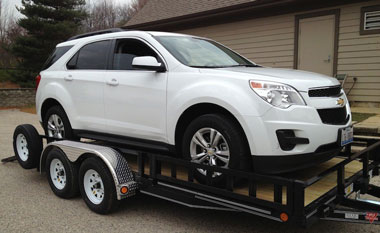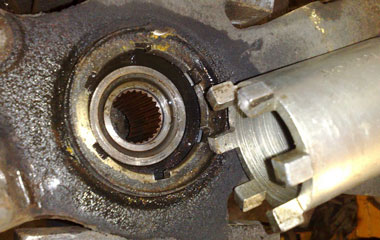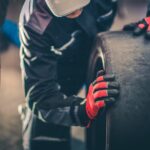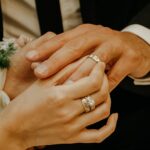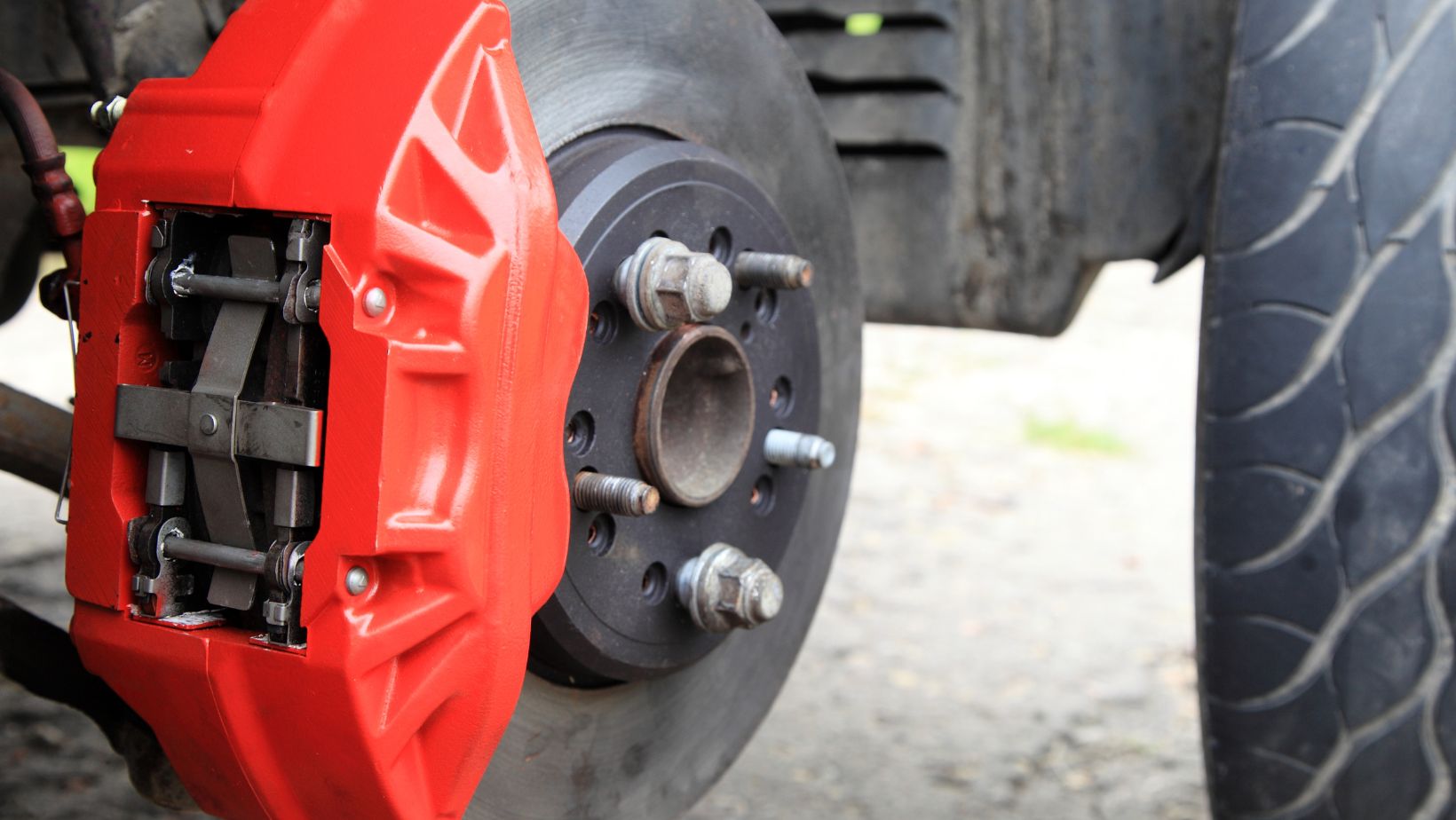
If you notice your brakes making noise when turning, it’s important to have them inspected as soon as possible. There are a few different potential causes of this problem, and it’s important to get to the bottom of it so that your brakes can be repaired or replaced if necessary.
In some cases, the problem may be as simple as a loose brake pad, but in other cases it could be indicative of a more serious issue.
Either way, it’s best to err on the side of caution and have your brakes checked out by a professional.
If you’re hearing a noise when you turn the wheel, it’s likely coming from your brakes. When braking, the pads press against the rotors to slow down the wheels. If there’s something wrong with the pads or rotors, they can start to make noise.
There are a few different things that could be causing this noise. It could be that the pads are worn out and need to be replaced. The rotors may also be damaged and need to be replaced or resurfaced.
In some cases, brake calipers can become stuck and cause a grinding noise. If you’re hearing any type of noise from your brakes, it’s important to have them checked out as soon as possible by a qualified mechanic. Brakes are vital for safety, so don’t take any chances!
Why Does My Car Make a Noise When I Turn the Wheel?
There are a few reasons your car might make a noise when you turn the wheel. It could be something as simple as low power steering fluid or a loose belt, or it could be something more serious like a problem with your power steering pump or rack and pinion. If you hear a squealing noise when you turn the wheel, it’s likely that your power steering fluid is low.
You can check the level of fluid by looking at the dipstick under the hood of your car. If it’s low, add more fluid until it reaches the “full” line on the dipstick. If you hear a grinding noise, it could be that your power steering pump is failing.
This is a serious issue that will need to be fixed by a mechanic as soon as possible. Another possibility is that there’s something wrong with your rack and pinion. This is the part of your car’s suspension that controls the movement of your wheels.
If it’s damaged or worn out, it can cause a grinding noise when you turn the wheel. Again, this is something that will need to be fixed by a mechanic.
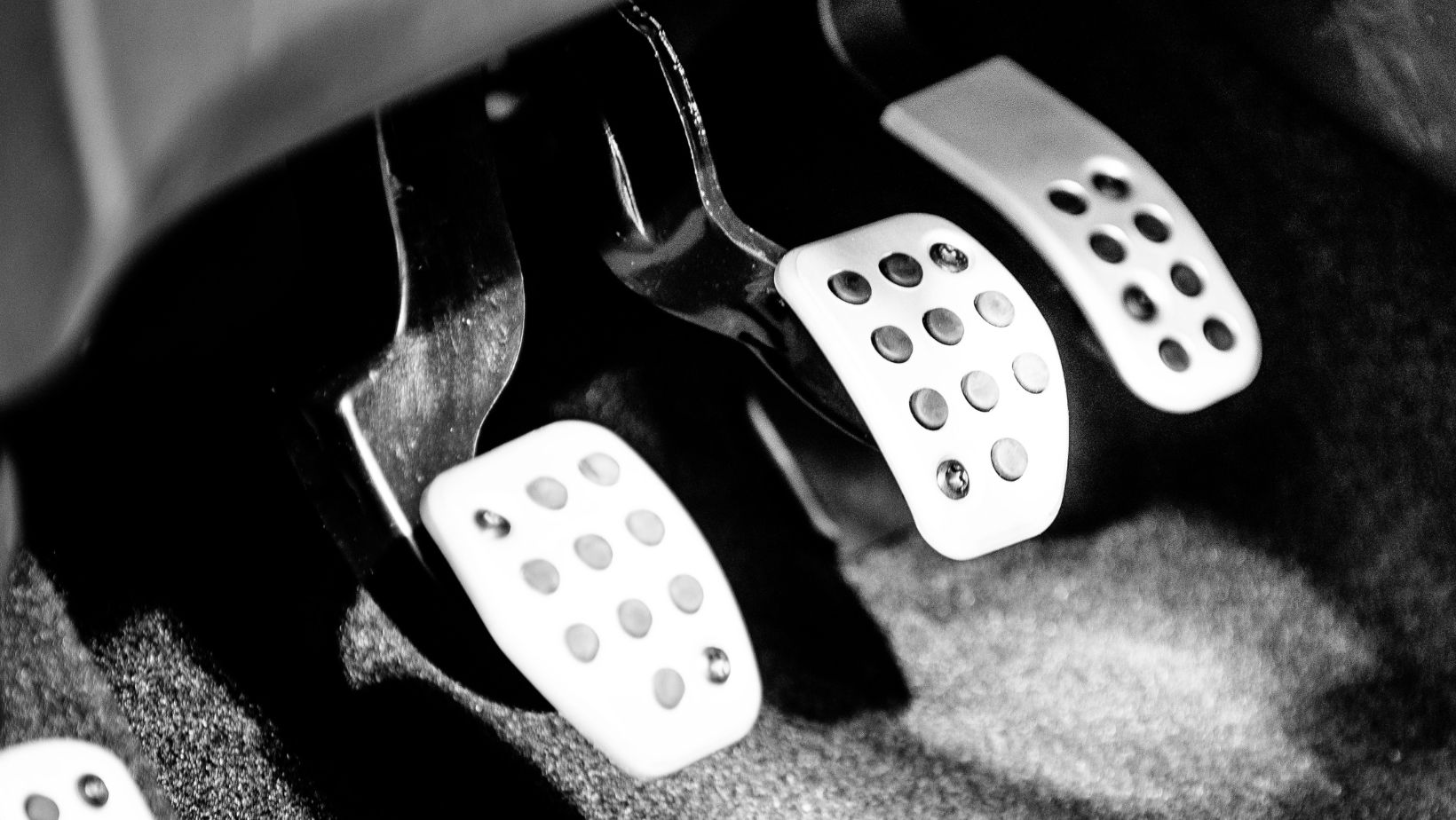
Why Do Brakes Grind When Turning?
If your brakes are grinding when you turn, it’s likely that there’s an issue with your brake pads. When the brake pads wear down, they can start to make a grinding noise. This is because the metal backing plate is rubbing against the rotor.
If this happens, it’s important to have your brakes checked and replaced as soon as possible.
There are a few other reasons why your brakes may grind when turning. One possibility is that there is something caught in between the rotor and the caliper.
This could be a piece of debris or even a small rock. Another possibility is that the caliper itself is sticking and not releasing properly. This can happen if the caliper piston gets stuck or if there is corrosion on the caliper slider pins.
If you hear a grinding noise when you turn, it’s important to get your brakes checked right away. Brakes are one of the most important safety features on your vehicle, so it’s important to keep them in good working order!
Why Do My Brakes Squeak When I’m Turning?
If your brakes are making a squeaking or grinding noise when you turn, it’s usually an indication that your brake pads need to be replaced. Over time, brake pads wear down from use and can become thin. When they get too thin, they can start to make noise when the brakes are applied.
In some cases, the pads may also start to vibrate, which can cause a squeaking noise. If you notice either of these symptoms, it’s important to have your brakes checked by a qualified mechanic as soon as possible. Brakes are one of the most important safety features on your vehicle, so it’s important to keep them in good working condition.
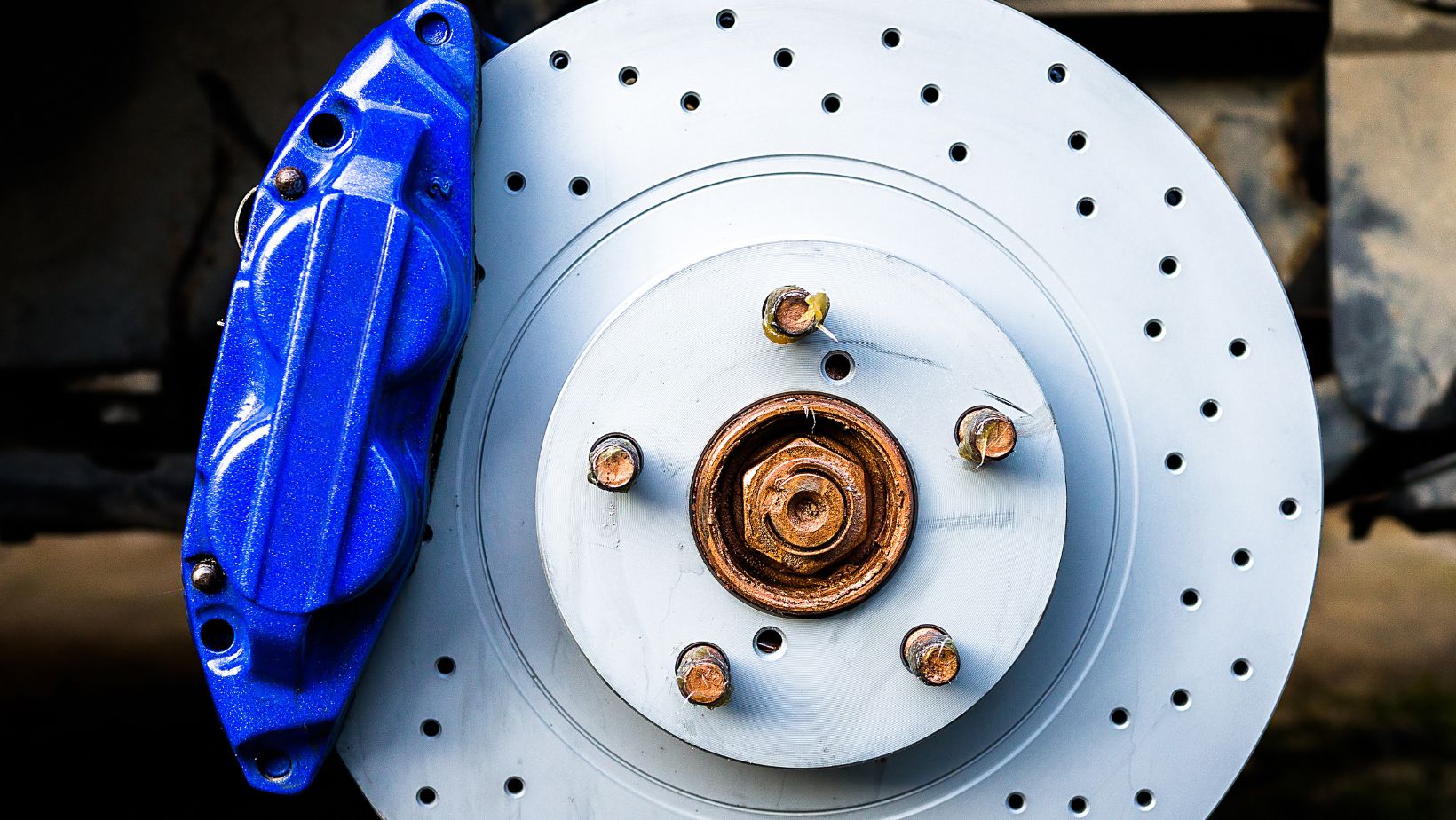
Noise When Turning & Braking – Found & Fixed
Noise When Pressing Brake Pedal
When you press the brake pedal, your car’s brakes make a noise. This noise is caused by the pads and rotors rubbing together. The amount of noise depends on the type of brakes you have and how worn they are.
Newer cars with ceramic brakes tend to be quieter than older cars with steel brakes.
If your car’s brakes are making more noise than usual, it could be an indication that they need to be replaced. If you hear grinding or squealing when you press the brake pedal, this is definitely a sign that something is wrong and you should take your car to a mechanic for an inspection.
In general, it’s a good idea to have your brakes checked regularly to ensure they’re in good working condition. With proper maintenance, your brakes should last for many years without needing to be replaced.
Brakes Making Noise When Stopping
If your brakes are making noise when you stop, it’s important to have them checked out as soon as possible. There are a few different things that could be causing the noise, and it’s important to identify the problem so that it can be fixed.
One possibility is that the brake pads are worn out and need to be replaced.
If the pads are worn down too far, they can start to make a squealing noise when they come in contact with the rotors. Another possibility is that there is something caught in between the rotor and pad, such as a pebble or piece of metal. This can cause a grinding noise when stopping.
If you’re hearing any type of noise from your brakes, don’t ignore it! Bring your car in to a qualified mechanic so they can take a look and determine what needs to be done to fix the problem.
Brake Rotor Noise When Turning
If you notice your brake rotor making noise when turning, it’s important to have it checked out as soon as possible. This can be a sign of a serious problem that if left unchecked, could lead to costly repairs or even accidents.
There are a few different things that can cause brake rotor noise when turning.
One possibility is that the rotors are warped. This can happen if the brakes get too hot, for example from extended braking during a long downhill drive. Warped rotors will need to be replaced.
Another possibility is that there is something caught between the brake pad and rotor. This could be a piece of debris or even an insect. If this is the case, you’ll likely hear the noise when applying the brakes rather than when turning.
In either case, it’s best to have your brakes inspected by a professional as soon as possible to avoid further damage or safety issues.
Car Makes Grinding Noise When Turning Right But Not Left
If your car is making a grinding noise when you turn right, but not left, there are a few possible explanations. The most likely culprit is an issue with your right wheel bearing. This component helps to keep the wheel attached to the car and allows it to rotate smoothly.
If the wheel bearing is damaged or worn out, it can cause a grinding noise when the wheel is turned.
Another possibility is that there is something caught in your right brake pad. When you turn the wheel, this object can rub against the rotor and cause a grinding noise.
You should check your brake pads for any foreign objects before assuming that the problem lies with the wheel bearing.
If neither of these solutions fixes the problem, it’s possible that there is an issue with your power steering system. When you turn the wheel, fluid from the power steering pump moves through a series of hoses and valves to help make turning easier.
If there is a leak in one of these hoses or valves, it can cause a grinding noise when you turn the wheel as well as making it harder to turn.
Grinding Noise When Turning at Low Speed
If you’re hearing a grinding noise when turning at low speed, there are a few potential causes. First, it could be an indication that your brakes need to be replaced. If your brake pads are worn down, they can start to make a grinding noise when they come into contact with the rotors.
Another possibility is that there is something caught in between the rotor and the caliper. This can happen if small bits of debris get caught in the brake assembly. If this is the case, you’ll need to have the brakes cleaned out by a professional.
Finally, it’s also possible that the grinding noise is coming from the CV joint or drive shaft. If this is the case, you’ll need to have these components inspected and potentially replaced by a mechanic.
Clunking Noise When Braking And Turning
We think nothing of it when we hear a little clunking noise when we’re braking and turning. But what if that clunking noise is actually your car telling you something? If you’re hearing a clunking noise when braking and turning, it’s time to have your brakes checked.
The most common reason for a clunking noise when braking and turning is worn brake pads. When your brake pads wear down, they can start to make a metal-on-metal grinding noise. This happens because the metal backing plate of the brake pad is rubbing against the rotor (the spinning disc that the brake pad grabs onto to stop the wheel).
If you ignore this noise and don’t get your brakes checked, eventually the metal backing plate will wear through the rotor. This will cause even more damage and will be much more expensive to fix. So if you’re hearing a clunking noise when braking and turning, don’t ignore it!
Get your brakes checked as soon as possible.
Brake Noise When Braking Slowly
If you’re hearing brake noise when you brake slowly, it’s likely due to a buildup of brake dust on your brakes. Brake dust is created every time your brakes are used, and it can eventually build up to the point where it affects braking performance.
To clean your brakes and remove the brake dust, you’ll need to use a special brake cleaning solution.
You can find these solutions at most auto parts stores. Once you’ve got the solution, simply spray it onto your brakes and then wipe them down with a clean cloth. Don’t forget to also clean the wheels while you’re at it!
After cleaning your brakes, they should be quiet again when braking slowly. If the noise persists, there may be an issue with your brake pads or other components that will need to be addressed by a professional mechanic.
New Brakes Making Noise When Stopping
If your new brakes are making noise when stopping, it’s likely due to one of two reasons. Either the brake pads are too thick and need to be machined down, or the calipers are not properly aligned with the rotor.
If the brake pads are too thick, they will make a squealing noise as they stop the vehicle.
The pads need to be replaced with thinner ones or machined down so that they fit correctly.
If the calipers are not aligned, you’ll hear a grinding noise when you apply the brakes. This can be fixed by realigning the calipers with the rotor.
Conclusion
No, brakes should not make noise when turning. If your brakes are making noise when you turn, it could be a sign that they are wearing down and need to be replaced. It could also be a sign of a more serious problem, so it’s important to have them checked out by a mechanic as soon as possible.


